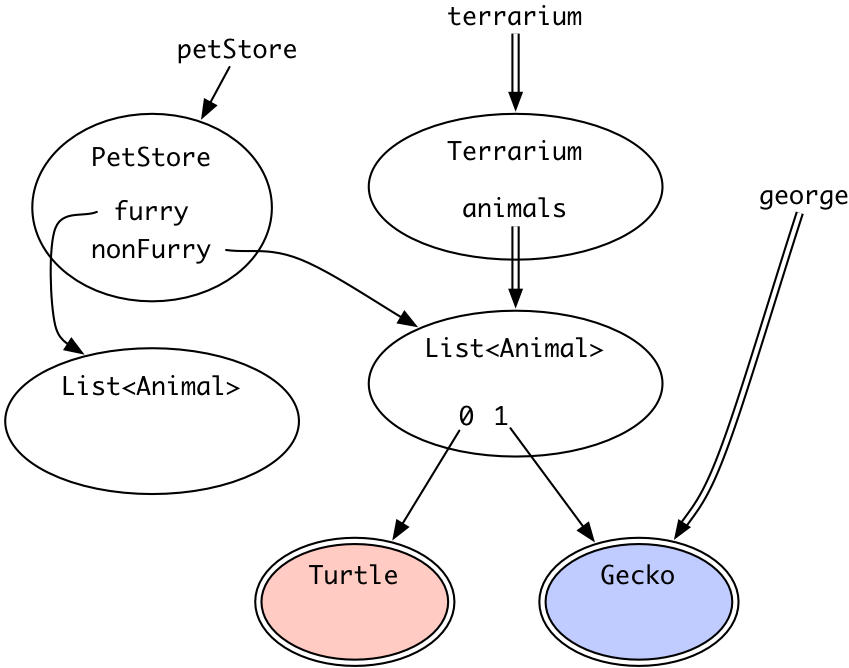Why Are Strings Immutable in Java? Vital Understanding for Programmers
Why Are Strings Immutable in Java? Vital Understanding for Programmers
Blog Article
What Is Immutable Strings and Just How It Functions
In the world of programs, comprehending the principle of unalterable strings is vital for producing secure and durable applications. Unalterable strings refer to strings that can not be changed after they are developed, ensuring information stability and predictability within the code. This fundamental concept plays a vital duty in numerous programming languages and supplies an unique method to managing data. By discovering the complexities of exactly how unalterable strings work, one can reveal a world of advantages and opportunities that can elevate the top quality and effectiveness of software advancement.
The Fundamentals of Unalterable Strings
Unalterable strings, as a basic concept in programs, are character series that can not be changed once they are produced. This indicates that once a string is designated a worth, that value can not be modified. In languages like Python and Java, strings are unalterable objects, causing different effects in terms of memory administration and data integrity.
One of the essential benefits of unalterable strings is that they offer a feeling of protection in information adjustment. Since the web content of an unalterable string can not be changed, it makes sure that the initial information stays intact, reducing the risk of unintentional modifications during program execution (Why are strings immutable in Java?). This property also simplifies debugging processes, as designers can rely on that as soon as a string is specified, its worth will not be accidentally altered
When a brand-new string is developed based on an existing one, rather than changing the initial string, the new worth is saved individually. In general, recognizing the fundamentals of immutable strings is critical for mastering programs principles and optimizing code efficiency.
Advantages of Unalterable Strings
Building upon the safety and security and effectiveness benefits of unalterable strings, their advantages expand to enhancing code reliability and simplifying concurrent programming jobs. By being immutable, strings can not be modified after development, which gets rid of the threat of unintentional adjustments in the data they keep. This integral immutability guarantees that once a string is created, its value stays continuous throughout the program's execution, lowering the possibilities of insects triggered by unforeseen changes.
Furthermore, immutable strings add to code reliability by making it easier to reason concerning the state of a program. Given that strings can not be altered, developers can trust that a string will certainly constantly hold the same value, streamlining debugging and maintenance initiatives. This predictability leads to a lot more reputable and stable codebases.

Implementation in Programs Languages
Within numerous shows languages, the consolidation of immutable strings is a fundamental facet that influences just how data is managed and adjusted within code frameworks. The implementation of unalterable strings differs throughout visit this site different shows languages, with each language supplying its very own mechanisms to support this idea.

In contrast, languages like C and C++ do not have built-in assistance for unalterable strings. Developers in these languages need to manually execute immutability by implementing policies within their code to avoid direct modifications to string items.
Ideal Practices for Collaborating With Unalterable Strings
When managing immutable strings in programs languages like Java and Python, sticking to ideal practices makes sure safe and reliable information control. One of the essential best techniques is to utilize StringBuilder or StringBuffer instead of straight adjusting strings, particularly when handling extensive concatenation procedures. These courses give mutable alternatives for string manipulation, aiding to stay clear of unnecessary memory appropriations and improving performance.
In addition, when working with sensitive information such as passwords or API secrets, it is vital to prevent keeping them as ordinary text in immutable strings. Making use of safe storage space mechanisms like char selections or specialized libraries for dealing with delicate info helps alleviate protection risks linked with immutable strings.
Real-world Applications and Examples
Checking out sensible applications of immutable strings in various industries discloses their substantial effect on information integrity and system integrity. In the medical care field, immutable strings play a vital duty in making sure the safety and security and privacy of person data. By preventing unapproved modifications to sensitive information such as medical records and prescriptions, unalterable strings assist preserve compliance with stringent privacy guidelines like HIPAA.
Banks also profit from the immutable nature of strings to enhance the protection of customer read review data and purchase records. Immutable strings assist protect against fraud and unauthorized modifications to economic info, giving a durable protection versus cyber threats and making certain the count on and self-confidence of clients.

Verdict
Ideal practices for functioning with immutable strings consist of preventing straight alterations and making use of approaches that return brand-new string things. Real-world applications of unalterable strings consist of data security, caching, and string adjustment tasks.
Unalterable strings refer to strings that can not be modified after they are developed, making sure information stability and predictability within the code. When a brand-new string is created based on an existing one, rather than changing the initial string, the brand-new worth is stored separately.In languages like Java and Python, strings are immutable by default, suggesting that when a string item is developed, its worth can not be changed - Why are strings immutable in Java?. Finest techniques for working with immutable strings include avoiding direct alterations and utilizing approaches that return new string items. Real-world applications of immutable strings consist of information encryption, caching, and string manipulation jobs
Report this page